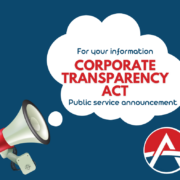Investing in Tax Liens and Tax Certificates In Your Self Directed IRA
Tax lien investing with a Self-Directed IRA is not all that well known in mainstream circles. You don’t read very much about it in the mainstream financial magazines, and you won’t see it discussed much on CNBC’s Squawk Box. But there are quite a number of people who make a practice of it – with terrific results.
They also make great investments for a Self-Directed IRA, because they don’t require a ton of cash flow, they generate quite a bit of income (up to 15 to 18 percent in some cases), which enjoys tax deferral or tax free treatment in conventional and Roth IRAs, specifically.
Here’s how they work:
Occasionally, a property owner may fall behind in his or her property taxes. But the county would rather not foreclose on the property for non-payment of taxes if they don’t have to. That’s an expensive and inefficient procedure for them. But they need the cash now, to pay county expenses. Here’s where you and your Self-Directed IRA come in:
You identify a property owner who is delinquent on property taxes, and pay the tax for them. In return, you get to place a lien on the property. Alternatively, the county may place a lien on the property, and then sell that lien to the highest bidder.
Generally, counties will auction off the opportunity to pay delinquent taxes. But sometimes they don’t have enough bidders to sell all the opportunities, so there may be an overhang, even after the auction.
Here’s what you can do:
- Pick a county. Most people concentrate on their own county or a neighboring one.
- Contact the treasurer or office of the tax collector in your county and ask when the next ‘tax sale’ will occur, and where.
- Get a copy of the rules of the sale and inspect them carefully. There may be pre-registration requirements, or proof of funds requirements. You don’t want to bid and then get caught short because you didn’t follow directions!
- Get a list of the properties or tax liens to be sold.
- Ask if there are any unsold liens or certificates left over from the last tax sale, and how you may purchase them.
If you want to use Self-Directed IRA funds, you’ll need to open an account with American IRA, LLC or another custodian/third party administrator who handles self-directed retirement accounts. Once you decide on a purchase, let us know in writing who to send the cash from your Self-Directed IRA account and how much. Also let us know precisely what you want your IRA to purchase on your behalf.
From there, typically you notify the property owner of the lien, and how much they have to pay to close the lien on their property. The debt will accrue at an interest rate that you select, but generally the jurisdiction will impose a cap. Typically, however, this cap is much higher than rates commonly available in publicly traded bonds or other debt securities.
Generally, the owners will pay the debt eventually, rather than go through foreclosure.
Risk is very low, in most cases, though it is possible to take a bath on these types of investments if you bid on a property that turns out to be worthless. So do your due diligence before bidding.
American IRA, LLC specializes in self-directed retirement accounts and non-standard IRA investments and alternative asset classes like tax liens and tax certificates. Our offices are in Charlotte and Asheville, North Carolina, but we work with investors in all 50 states, and have clients successfully investing in tax liens and tax lien certificates across the country.
For more information, or a more extensive guide to tax lien and tax certificate investment within a Self-Directed IRA, call us today at 866-7500-IRA(472). Or visit our website at www.americanira.com for a full library of information and resources to help you become more successful.
We look forward to serving you.


